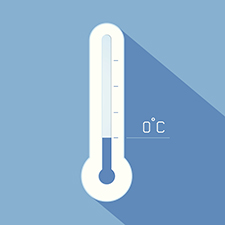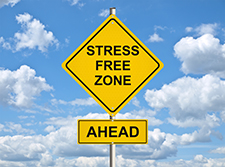 Nothing is more chilling to a job hunter than suddenly freezing up during an interview.
Nothing is more chilling to a job hunter than suddenly freezing up during an interview.
One minute, you’re answering all the hiring manager’s questions with ease and the next, you’re sliding away on thin ice as your brain shuts off. How you react to a sudden brain freeze can play a big part in how well you complete the interview and whether or not you land the position.
So how do you avoid freezing up in a winter interview? We have five tips to help avoid the dreaded interview brain freeze.
Prepare Ahead of Time
Just as you would prepare your home or vehicle for nasty winter weather, prepare your brain for an upcoming interview. Practice answering interview questions in a warm, confident manner. Research the company and have a list of hot topics to discuss, ranging from company culture to challenges the company hopes you can resolve.
If you know the weather will be bad the day of the interview, be prepared to give yourself extra travel time. Dress professionally, but warmly, so you don’t shiver and rattle your teeth throughout the whole process.
Recognize the Signs of Brain Freeze
Anyone who has ever had the unfortunate experience of freezing up in a situation knows what the sensation feels like. Unfortunately, sometimes you can’t tell you’re in a brain freeze situation until you’ve slipped on the ice a few times during the interview.
First, tell yourself that it is okay to not have all the answers to every question. When in doubt, you could say, “I do not know, but could find out and get back with you ASAP.” Also, observe how quickly or nervously you are speaking. Take a nice deep, warming breath and slow down.
Some experts say it is fine to admit to an interviewer that you are nervous, but beware of using this tactic too freely. While honesty is top priority, confidence is a highly sought after trait in an employee.
Have a Snow Route in Your Brain
Have you ever been asked a question in an interview, and suddenly your mind goes blank? Luckily, you know you’re in brain freeze, so you can break yourself out of it if you already have a backup route in place.
Ask the interviewer to repeat the question. This tactic gives you time to calm down, hear the question again, and answer intelligently. If you are still stuck on thin ice, paraphrase the question back to the interviewer. Again, this buys a little time to dig yourself out of the snow drift.
However, if none of these tactics work, ask the interviewer for a moment to really consider the answer.
Limit Nervous Behavior
Even if you are scared to death and nervous as a winter hare, limit the giveaway signs of nervousness. Don’t fidget. Don’t speak too quickly or ramble on.
You know what nervous habits you possess, so practice controlling those ahead of time. Try speaking to a friend with your hands folded in your lap and your tapping leg still.
Holding a pen or a copy of your resume during the interview may help chill out the nervous behaviors as well.
Remain Positive
When it comes to not freezing up during a winter interview, the best advice is to remain positive, confident, and polite. Everyone has brain freezes on occasion, and interviewers know you are nervous. Cool your nerves by telling yourself that you deserve to be in the interview—you wouldn’t have been invited if you weren’t.
Have you ever had brain freeze during a job interview? How did you break out of the situation? Share your best tips with us in the comments below.
Movin’ On Up is brought to you by Express Employment Professionals.

 Scoring a job interview with a company you’re excited to work for is always a positive thing. But, you still may experience the famous mix of anticipation and dread that goes along with an interview.
Scoring a job interview with a company you’re excited to work for is always a positive thing. But, you still may experience the famous mix of anticipation and dread that goes along with an interview.

